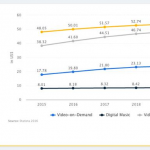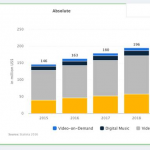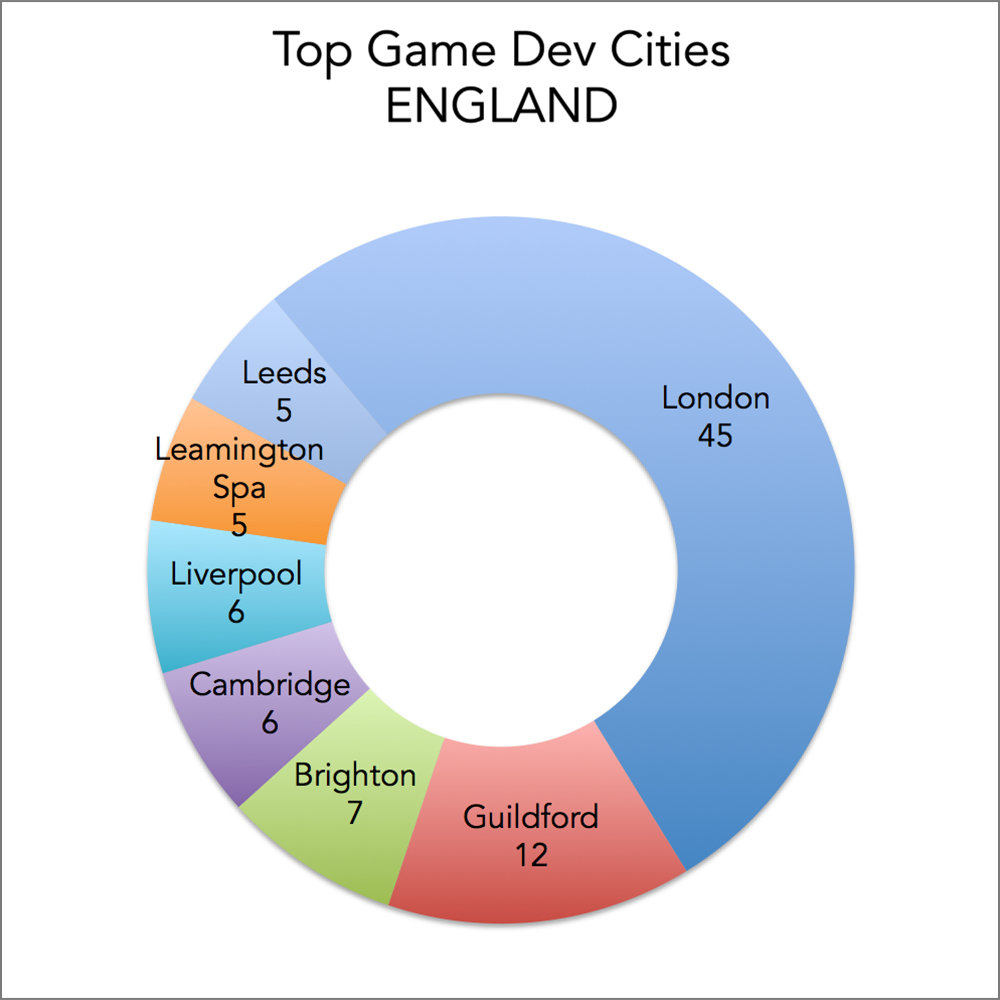Tag: videojogos
retro videogamer, um site
Encontrei um site que mostra algumas noticias sobre videojogos antigos. É mais um blog do que um site, já que vão sendo colocadas algumas noticias sobre a temática.
+infos(link): http://www.retrovideogamer.co.uk/
Recursos de sprites, assets para usar em videojogos

Kenney é um artista digital que constrói objectos que podem ser usados nos videojogos, alguns de forma livre/grátis outras a troco de uma pequena ajuda monetária.
+infos(assets do kenney): http://kenney.nl/assets/
+infos(como o ajudar): LINK
+infos(como usar): LINK
Support for Development of European Video Games 2017
A comissão europeia tem um concurso aberto a todos aqueles que querem desenvolver videojogos na união europeia. Este concurso aberto a todos (estúdios com mais de 12 meses de actividade) permite obter fundos para ajudar no desenvolvimento de projectos nesta área.
As candidaturas são até ao inicio do mês de março.
+infos: LINK
Livros sobre videojogos..
(2013)Honoring the Code: Conversations with Great Game Designers de Matt Barton
(2003)The Video Game Theory Reader de Mark J. P. Wolf
(2005)21st Century Game Design de Chris Bateman e Richard Boon
(2013)Fundamentals of Game Design de Ernest Adams
(2009)Level Design: Concept, Theory, and Practice de Rudolf Kremers
(2014)An Architectural Approach to Level Design de Christopher W. Totten
(2014)Introduction to Game Design, Prototyping, and Development: From Concept to Playable Game – with Unity and C# de Jeremy Gibson
(2008)Game Feel: A Game Designer’s Guide to Virtual Sensation de Steve Swink
(2012)Reality is Broken: Why Games Make Us Better and How They Can Change the World de Jane McGonigal
(2015)Uncertainty in Games de Greg Costikyan
(2012)Game Mechanics: Advanced Game Design de Ernest Adams e Joris Dormans
(2004)Game Design, Theory and Practice de Richard Rouse III
(2003)Rules of Play: Game Design Fundamentals de Katie Salen e Eric Zimmerman
(2008)Understanding Video Games: The Essential Introduction de Simon Egenfeldt-Nielson, Jonas Heide Smith, Susana Pajares Tosca
(2007)Videogame, player, text de Barry Atkins e Tanya Krzywinska
(2012)Characteristics of Games de George Skaff Elias, Richard Garfield, K. Robert Gutschera, Peter Whitley, Eric Zimmerman
(2008)Game Design Workshop: A Playcentric Approach to Creating Innovative Games de Tracy Fullerton
(2013)Videogames de James Newman
(2008)Challenges for Game Designers de Brenda Brathwaite, Ian Schreiber
(2011)Half-Real: Video Games between Real Rules and Fictional Worlds de Jesper Juul
(2014)Play Matters de Miguel Sicart
(2003)Designing Virtual Worlds de Richard A. Bartle
(2010)Replay: The History of Video Games de Tristan Donovan
(2008)The Ultimate Guide to Video Game Writing and Design de Flint Dille, John Zuur Platten
(2007)The Game Maker’s Apprentice: Game Development for Beginners de Jacob Habgood , Mark Overmars, Phil Wilson
(2014)Video Game Storytelling: What Every Developer Needs to Know about Narrative Techniques de Evan Skolnick
(2010)The Game Maker’s Companion (Technology in Action) de Jacob Habgood, Nana Nielsen, Martin Rijks
(2014)Game Design Workshop: A Playcentric Approach to Creating Innovative Games de Tracy Fullerton
(2012)A Mind Forever Voyaging: A History of Storytelling in Video Games de Dylan Holmes
(2001)The Ultimate History of Video Games: From Pong to Pokemon–The Story Behind the Craze That Touched Our Lives and Changed the World de Steven Kent
(2009)Games of Empire: Global Capitalism and Video Games de Nick Dyer-Witheford, Greig de Peuter
(2011)Extra Lives: Why Video Games Matter de Tom Bissell
(2008)Game Feel: A Game Designer’s Guide to Virtual Sensation de Steve Swink
(2003)Rules of Play: Game Design Fundamentals de Katie Salen Tekinbas, Eric Zimmerman
(2013)Theory of Fun for Game Design de Raph Koster
(2013)The Art of Failure: An Essay on the Pain of Playing Video Games de Jesper Juul
(2013)Critical Play: Radical Game Design de Mary Flanagan
(2012)Understanding Video Games: The Essential Introduction de Simon Egenfeldt-Nielsen, Jonas Heide Smith, Susana Pajares Tosca
(2011)Reality Is Broken: Why Games Make Us Better and How They Can Change the World de Jane McGonigal
(2014)A Game Design Vocabulary: Exploring the Foundational Principles Behind Good Game Design de Anna Anthropy, Naomi Clark
(2010)Persuasive Games: The Expressive Power of Videogames de Ian Bogost
(2011)How to Do Things with Videogames de Ian Bogost
(2012)Rise of the Videogame Zinesters: How Freaks, Normals, Amateurs, Artists, Dreamers, Drop-outs, Queers, Housewives, and People Like You Are Taking Back an Art Form de Anna Anthropy
(2012)Game Design Theory de Keith Burgun
(2008)The Game Inventor’s Guidebook: How to Invent and Sell Board Games, Card Games, Role-Playing Games, & Everything in Between! de Brian Tinsman
(2006)Game Design Reader: A Rules of Play Anthology de Katie Salen, Eric Zimmerman
(2001)Man, Play and Games de Roger Caillois, Meyer Barash
(2001)The Ambiguity of Play de Brian Sutton-smith
(2014)Fundamentals of Game Design, 3/E de Ernest Adams
(2015)Game Design Vocabulary, A: Exploring the Foundational Principles Behind Good Game Design de Anna Anthropy e Naomi Clark
(2015)Players Making Decisions: Game Design Essentials and the Art of Understanding Your Players de Zack Hiwiller
(2015)Learning 2D Game Development with Unity: A Hands-On Guide to Game Creation de Matthew Johnson e James A. Henley
.unity
(2013)Unity Game Development in 24 Hours, Sams Teach Yourself de Mike Geig
(2015)Unity in Action: Multiplatform Game Development in C# with Unity 5 de Joe Hocking
Statista
Um bom site sobre estatística sobre o consumo de videojogos em Portugal e não só.




+infos: LINK
HISTORIA Y VIDEOJUEGOS

Repositório interessante em espanhol acerca da história dos videojogos:
http://www.historiayvideojuegos.com/?q=produccion
Gostava de ter acesso/access to your article
Gostava de ter acesso/access to your article,
Shaojung Sharon Wang and Shih-Jung Hsu (March 2016)
Not So Angry Birds: Psychological Benefits of Mobile Games
http://aisel.aisnet.org/pajais/vol8/iss1/4/
Netta Ganor and Dov Te’eni (January 2016)
Designing Interfaces for Older Users: Effects of Icon Detail and Semantic Distance
http://aisel.aisnet.org/thci/vol8/iss1/1/
Investigação
Tema: “Integration and deployment of video games in the classroom”, “Role of instructors”
Livro “Developments in Current Game-Based Learning Design and Deployment”: LINK
Um blog a seguir

Este é um blog a seguir para quem quer desenvolver videojogos em Unity.. apresenta algumas soluções relacionadas com o desenvolvimento de plugins, cenários..
+infos: http://www.alanzucconi.com/
Literatura sobre videojogos

Aqui fica um link para literatura sobre videojogos:
http://www.ludoscience.com/EN/ressources/bibliographie/index.html
Uma análise a ponderar por Jesse Freeman
Develop a mobile game the easy way: Use a framework por Jesse Freeman e também este 4 fundamentals of mobile game design
+infos: http://techbeacon.com/develop-mobile-game-easy-way-use-framework
Dois projetos muito interessantes sobre videojogos
Estão a decorrer no kickstarter dois projetos muito interessantes sobre videojogos, o primeiro é uma campanha para ter acesso a um curso online sobre programação em C++ para o motor unreal
“Learn To Make Video Games – Unreal Developer Course In C++” -> LINK
O segundo é sobre a compra de um livro de dois famosos produtores :)
“The story of the Oliver Twins” -> LINK
Crónica: A nova vaga de videojogos portugueses
Crónica: A nova vaga de videojogos portugueses por Ivan Barroso
A nova vaga de videojogos portugueses
Portugal tem potencial. Acho que isto já não é novidade nenhuma. E aos poucos o trabalho surge. Até ao momento, já houve um deslumbre da nova vaga de títulos Made in Portugal
Já passou um ano desde que o primeiro Microsoft Game Dev Camp decorreu e, provavelmente, este evento criou uma espécie de faísca no desenvolvimento de jogos em Portugal, ou, pelo menos, ajudou a criar um ecosistema que não existia. Agora que a data da segunda edição foi anunciada (12 de Setembro), espera-se que a mesma energia continue.
Na edição do ano anterior, muitos jogos foram anunciados ou apresentados pela primeira vez ao grande público, e entre todos os títulos anunciados, são poucos os que ainda não viram a luz do dia. “Hush”, da GS78, já foi lançado, assim como “Projec Shrooms”, da Immersive Douro, “Parigami”, da Awesome, e “Smash Time”, da Bica Studios. Mesmo assim, ainda faltam: “Greedy Guns”, da Tio Atum, “Between me and the Night”, da Raindance Studios, “Cosmonaut”, da Ground Control Studios, e “Nobu: Fat Revenge” da Binnary Pig. Felizmente, estes todos estão na recta final de desenvolvimento.
Jogos à vista!
Portugal tem potencial. Acho que isto já não é novidade nenhuma e, aos poucos, o trabalho surge. Até ao momento, já houve um deslumbre da nova vaga de títulos Made in Portugal. Exemplos disso são a produtora nacional Fun Punch, que venceu o Microsoft Pizza Night deste ano, com o seu “Super Battle Arena” (nome provisório), e é sem dúvida um dos títulos mais aguardados, misturando competição entre dois jogadores num jogo inspirado na personagem Nidalee de League of Legends. A Biodroid dividiu-se em várias outras empresas, tendo dado lugar à B5 em Lisboa, que esteve na Gamescom 2015 para apresentar o seu novo puzzle para telemóveis, o “Drawn to Light”. A Norte temos a Amplify Studios, que está a trabalhar no “Decay of Logos”, um action adventure que promete. Recentemente surgiu a Dsquare Games, co-fundada por Ivo Canelo, que passou pela Massive/Ubisoft e trabalhou no” Tom Clancy’s The Division”, mas voltou a Portugal para apostar no universo Indie. Neste momento está a trabalhar no RTS, “Inner Sea”.
Em termos individuais, há igualmente cada vez mais pessoas em Portugal a fazer trabalho remoto para grandes empresas. Henrique Lopes, em Lisboa, tem-se destacado como 3D Prop e Environment artist, no novo “ARK: Survival Evolved”, enquanto, Pedro Camacho, na ilha da Madeira, fez a banda-sonora para títulos como “Star Citizen”, “Civilization V” e “Witcher 3”.
Mas não é só em intrépidos aventureiros que Portugal se tem destacado. Com tanto a decorrer, isto não tem passado despercebido em termos internacionais. Prova disso é que, há relativamente pouco, a empresa Marmalade, uma das gigantes do sector mobile, abriu uma filial em Portugal. Está agora a fazer “companhia” à Miniclip (“Gravity Guy”, “8 Ball Pool”, “Hambo”), que se encontra entre nós desde a década passada.
Em suma, está muito a acontecer em Portugal, e neste pequeno texto toquei somente na ponta do iceberg. Existem mais títulos a ser planeados para várias plataformas – consolas, computadores, mobile – e é mais que notório que a qualidade está a crescer em Portugal.
Uma vez, o super veterano Filipe Pina, da Nerd Monkeys, disse-me: “O mais importante quando estás a fazer um jogo é conseguir acabá-lo e publicá-lo. Só assim é que se consegue evoluir.” E é exactamente isso que se está a decorrer em Portugal. No dia 12 de Setembro, na segunda edição do Microsoft Game Dev Camp, lá estarei para ver como está a ser a nossa evolução.
+infos(fonte): LINK
Um venda de um videojogo
Aqui está uma história contada na primeira pessoa sobre o lançamento e venda de um videojogo..
+infos(venda): http://yachtclubgames.com/2014/08/sales-one-month/
Best Cities for Video Game Development Jobs
Best Cities for Video Game Development Jobs por Jason Bay

Mais uma reportagem sobre o mercado dos videojogos a ler :)
+infos(reportagem): LINK
+infos(mapeamento): http://www.gamedevmap.com/
videojogos: ferramenta Stencyl

A explorar esta ferramenta visual para o desenvolvimento de videojogos.
+infos: http://www.stencyl.com/
Empresa Marmalade abre um estudio em Portugal
A empresa de desenvolvimento de videojogos multi-plataforma vai abrir um estúdio em Portugal :)
+infos(noticia): LINK
+infos(empresa): https://www.madewithmarmalade.com
Os quatro primeiros dias de um videojogo.. (Sproggiwood)
Uma explicação sobre o que são os primeiros quatro dias de um videojogo.. o “Sproggiwood”

+infos: LINK
artigo: “Some things you should know about Steam”
Recomendo a leitura deste artigo:
“Some things you should know about Steam”
+infos: LINK
How Video Games Make You Work por Simon Parkin
a ler..
”
My virtual employment history lacks, some might say, a certain focus. In the 1983 arcade game Tapper, I spent a summer as a bartender, sliding jugs of Budweiser with showboating precision along polished tables, to the delight of patrons. Paperboy, from 1985, had me bicycling up and down a suburban street, hurling newspapers into the mailboxes of subscribers, and taking the odd moment to vandalize the home of any non-subscriber. (The print industry’s decline commenced, I maintain, with my retirement from that gig.) SimCity, from 1989, landed me a role as a municipal planner, arranging the layouts of streets, placing electrical lines and sewage plants, and rolling with the odd natural disaster. Crazy Taxi (1999) put me behind the wheel of a low-slung cab, streaking through major cities to deliver passengers to their implausibly urgent appointments at Pizza Hut or Tower Records. There’s more. Shenmue (2000): forklift driver. Diner Dash (2004): server. Cooking Mama (2006): chef. Air Traffic Chaos (2008): air-traffic controller. Where some might see a drifter, I see only an enviable talent for adaptation.
Video games usually offer the chance to escape the mundane texture and circumstances of everyday life, by pushing us into situations and roles that are too dangerous, expensive, or rarefied for reality. We become the marine, the race-car driver, the fighter pilot, the international soccer star. But many games mimic the rhythm and monotony of more familiar jobs, allowing us to rehearse or reënact a working day once we’ve clocked out. In most cases, the designer zeroes in on the most interesting challenge or nuance of a profession, and turns it into a game. But in some titles the re-creation is more thorough.
In Sunset, a recently released game by the Belgian husband-and-wife team Tale of Tales, you play as a housekeeper, employed to clean your wealthy employer’s luxurious nineteen-seventies penthouse apartment for an hour each day. He leaves a to-do list for you each morning: “hang pictures,” “water plants,” “clean ashtrays,” and more. The game’s designers use this structure to meaningful effect: the hour becomes a lens through which you explore and understand a political revolution that’s taking place outside the apartment. But the labor of the gameplay is not metaphorical. You come to carry out your duties with a sense of pride and diligence; the routine becomes ritual.
The relationship between work and play is inherently entwined—there would, after all, be no PlayStation without the workstation. The link is clearest, perhaps, in a genre of simulation games that has enjoyed a surge in popularity in recent years. Car Mechanic Simulator, an unironic video-game approximation of the trade, became a best-seller in its first week of release, in late April. It’s just the latest simulation game that seeks to replicate working-class professions; the list includes Farming Simulator (gather crops), Oil Platform Simulator (drill for fossil fuels), Stone Quarry Simulator (collect rocks), Street Cleaning Simulator (collect litter), Euro Truck Simulator (deliver goods), and Tokyo Bus Guide (deliver passengers).
In a few cases, such simulations are authentic enough to be considered legitimate training for the profession itself. Time spent using military-grade flight simulators, for example, can count toward a pilot’s official flight-time record. Last year, a number of players of the Football Manager series of games submitted résumés for the job of managing Manchester United, in the U.K., citing their in-game achievements as qualifications. And each year the Japanese car manufacturer Nissan runs a competition using the driving-simulation game Gran Turismo, to find new racing talent. Lucas Ordoñez, the winner of the inaugural competition, in 2008, has become one of the company’s leading competitors on the professional track.
But this does not explain the success of games that simulate toil that has no relation to our professional interests. In Farming Simulator 2015, which was released for consoles in May, you simply cultivate crops on three plots of land, plowing, sowing, fertilizing, and harvesting your way toward a profitable agricultural business. In time, you can buy livestock and even hire automated workers to guide your tractors and combine harvesters, to save you the hassle of toil. Unlike in Sunset, there is no larger story: the work, however tiresome-seeming, is meant to entertain and challenge on its own.
In his paper “Working for the Man: Against the Employment Paradigm in Videogames,” the critic Steven Poole argues that in fact most video games imitate a wage-slave paradigm. “They hire us for imaginary, meaningless jobs that replicate the structures of real-world employment,” Poole writes. He argues that this pattern represents a “surprisingly literal fulfilment” of Theodor Adorno and Max Horkheimer’s argument, made more than sixty years ago, that amusement in advanced capitalism is the extension of work. In America, players often speak of “beating” a game, that moment when they complete its primary demands. But in the majority of cases, Poole points out, they simply do what the game asks of them, like a diligent employee. Which is to say, games like Farming Simulator are, in a sense, labor, even though they are universally labelled as leisure. We work our way toward a reward or resolution. (This realization is mirrored in the recent rise of the “gamification guru,” who seeks to make jobs more appealing by adding a patina of play.)
Why, then, do we return to these demanding virtual worlds? Maybe because, in their fairness and consistency, games appreciate our hard work: toil diligently, and you will be rewarded and promoted. Life isn’t always so just. There is also the appeal of variety. To age is to see your choices narrow. We specialize young, by choosing our educational paths at school, then dive ever deeper into those specialties. But in a video game, one day you’re a carpenter (Minecraft), the next you’re a god (Populous). Or, perhaps, the true appeal of the virtual job is simply that we are free to clock out when we choose, or to quit entirely without penalty. In this way, we become the master of that to which, outside of the game, we are bound.”
+infos(link): LINK
Cognitive Benefits of Playing Video Games
Cognitive Benefits of Playing Video Games por Peter Gray
+infos(resumo): LINK
+infos(livro): LINK
The Marketing Guide for Game Developers
Um guião para o desenvolvimento de videojogos indie..
+infos: LINK




